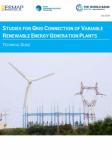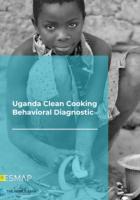Publications
This report integrates primary and secondary research with COM-B (Capability, Opportunity, Motivation – Behavior) theoretical framework for understanding and effecting behavior change and consumer decisions on usage of efficient biomass stoves. Organized around seven themes — awareness, consumer finance, trust, access, understanding, product features, and gender — the report presents the outcomes of stakeholder interviews, consumer focus groups, and household surveys aimed at gaining a deeper understanding of the factors that determine perception of improved stoves and drive consumer decisions.
It then proposes behavioral levers that the authors believe may increase the likelihood of uptake of efficient stoves and that can be ultimately used to maximize effectiveness of marketing by the private sector, design awareness campaigns, and sharpen the focus of development projects. The report primarily focuses on issues around improvement of biomass fuel usage efficiency and does not directly consider alternate cooking solutions, which might merit a more comprehensive review.
Energy Sector Management Assistance Program. 2019. Uganda Clean Cooking Behavioral Diagnostic. ESMAP Paper. World Bank, Washington, DC. © World Bank. License: CC BY 3.0 IGO. https://openknowledge.worldbank.org/handle/10986/31283


